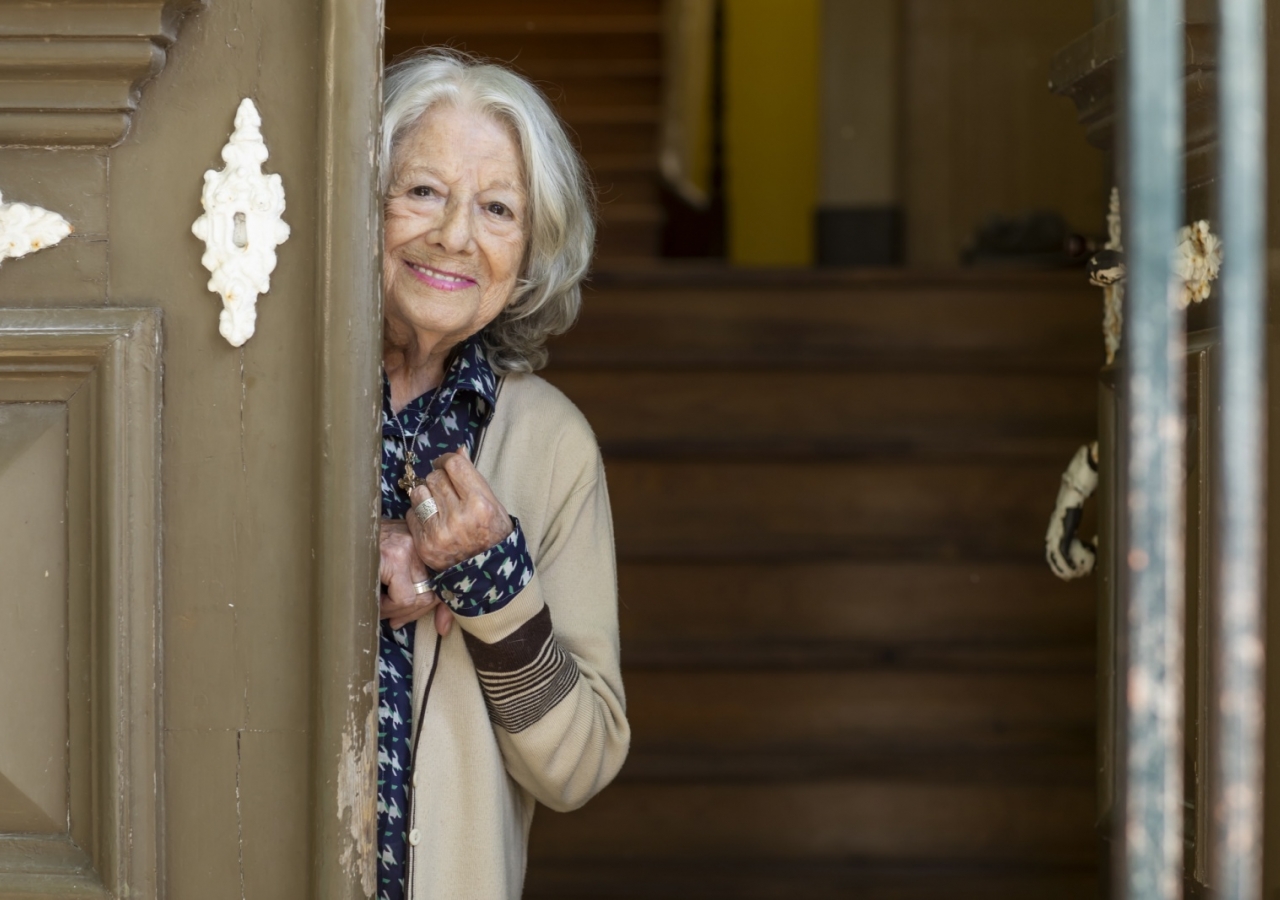Longer existences result, confirms science, of social evolution, imposing a paradigm shift. “Getting older is an extraordinary process, in which we become the person we should be”.
In 2030, according to United Nations estimates, Portugal will be the third most aged country in the world, after Japan and Italy. Today, almost one in 100 residents is between 90 and 99 years old (one in 95, if we include centenarians).
At Ivone Melo's house, in Loures, there is a balcony that looks like a garden, an altar with photographs of loved ones, a dog and several birds. Widowed for more than four decades and living alone for 25 years, Ivone shows the room with books, African art pieces and sofas lined by her.
Over the years, Ivone continues to lead “a normal life” and explains: “I don't like eating and watching TV, when there is nothing to do, I invent.” She remembers being a child and climbing trees, playing pranks and cycling between Queluz and Amadora, and a boyfriend not approved by her family which sent her to the North for a while. The exchange of correspondence after responding to an ad, “for fun”, ended with an marriage ring on the finger and “very happy times” in Lourenço Marques (currently Maputo), Mozambique. She was there two years ago, with one of her daughters, and wept when she had to return. "I want to go back when I reach 100!"
Do what you like
Irish playwright George Bernard Shaw said that we grow old because we stop playing.
An unavoidable presence in theater, television and cinema, actress Eunice Muñoz turned 92 last year, on July 30th. An assumed introvert, she surprised everyone with her live entry on Instagram (with the help of her granddaughter) in the special edition of How Does the Beast Move?, by humorist Bruno Nogueira, on April 25th. “I don't organize my day, the things that come up, I do them; the things I feel like doing, I do them”. She reads a lot, likes cooking, “not gourmet cooking because I don't know how to do it”, and moments of contemplation: “I think I'm at the age where I look deeply at each object, it gives me immense pleasure”.
Whenever possible, she continues on stage: “It's nice to go on television and play a little role, in short, a sample of what I could do if I had another age”. The word “challenges” may scare many people, but not her: “Listen, I've made changes all my life, my own profession is a constant change; therefore, changes are lifelong and almost 80 years of career”. Having arrived here, she gives importance to things not always valued when she is young: “Now I am able to stop and listen to the birds and feed them. I give much more importance to Nature, since I am this age”.
This age is also what we make of it until we get there. The surgeon António Gentil Martins, 90 years old, a pioneer in the surgery for the separation of siamese twins, does not doubt that “doing what you like” is essential to reach 90, among other factors: “The first one would have been genetics, the so-called 'good strain', following the way we took our youth to adulthood”. And the values transmitted in education, from solidarity to respect for others, through the “uncompromising defence of what we sincerely believe to be true” and family unity.
Chronological age does not define us
"We are not immortal, but we also do not know the maximum life expectancy", says Maria João Valente Rosa, author of the book ‘Um tempo sem idades’. She stresses that increasing the average life expectancy should be understood as more time to live (rather than being old for a longer period of time). The social paradigm has to change. “Aging is a differential process that occurs before 90, 60 or 50; we will be distorting reality if we do not look at the heterogeneity and social changes of older people".
The demographer refers to various ages: the psychological (how we feel subjectively) and the biological, that can regress with changes in lifestyle and is influenced by the times.
"In the future, people will be more qualified, more close to technology and have a more diversified consumption". For this Nova University professor, “chronological age does not define us”. Moreover, the most aging societies were the ones that made the most progress in combating diseases and planning for long periods, like Japan. “Being entertained gives us meaning, social value or recognition in the community, something that only a few can achieve”, she says.







